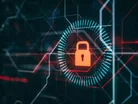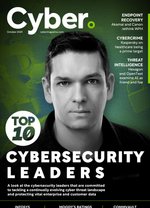How can you protect your computer from a cyber attack?

Society today is more technologically reliant than ever before and there is no sign that this trend will slow, therefore cybersecurity is becoming increasingly important. We live a significant part of our lives online and on computing devices. Whether it’s a laptop, a smartphone, or your desktop computer at work, you’ve got lots of valuable information that people would love to have.
With the rise in cloud services, poor cloud service security, smartphones, and the Internet of Things (IoT), we have a lot of cybersecurity threats that didn't exist a few decades ago. Keeping your computer secure helps you avoid malware and direct hacking attempts designed to steal your personal information.
How can you protect yourself from cyber attacks?
Here are just a few ways you can help reduce your online risk when you use your computer at home.
Use a firewall
A firewall is a security device, computer hardware or software, that can help protect your network by filtering traffic and blocking outsiders from gaining unauthorised access to the private data on your computer. It can also help block malicious software from infecting your computer.
The firewall acts as a gatekeeper, monitoring attempts to gain access to your operating system, and blocking unwanted traffic or unrecognised sources.
Using Strong Passwords
Passwords are one of the best defences against getting hacked. Most sites have a minimum password complexity. For example, they’ll say a password must be a certain length and contain a particular mix of character types. Try not to repeat passwords, and change them regularly.
A password management application can help keep your passwords locked down. These managers keep track of all your passwords securely and will generate randomised strong passwords that are almost impossible to guess using brute force or any other password cracking method.
Use two-factor authentication
Two-factor, or dual-factor authentication, adds a layer of security to online accounts by requiring two ways of proving your identity. One common form of two-factor authentication is entering a password, then receiving a one-time numerical code via text message.
Don’t open suspicious attachments or click unusual links in messages
Be aware of suspicious emails or texts containing links. Cyber criminals often send out a mass e-mail containing an attachment or a hyperlink. The attachment is malware and any hyperlink will to be a website masquerading as something legitimate. The goal is to trick the e-mail recipient into downloading the attachment (exposing their PC to the malware), or clicking the link to a website that may be infected with malware, or asks for confidential data such as credit card numbers to be entered.
Browse the web safely
Use modern browsers, which can help block malicious websites and prevent malicious code from running on your computer. Avoid visiting unknown websites or downloading software from untrusted sources. These sites often host malware that will automatically install (often silently) and compromise your computer.
Make sure software is up to date
To prevent known vulnerabilities from being exploited, all software must be kept up to date. This means installing patches released by the software developers to close security holes found in their products. Hence the name 'patching'.

